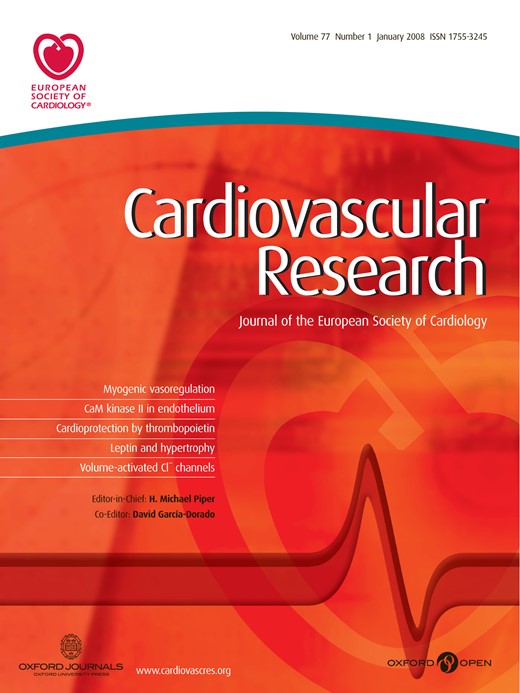-
PDF
- Split View
-
Views
-
Cite
Cite
ROYCE B. BROUGH, ALLEN W. COWLEY, ARTHUR C. GUYTON, Quantitative analysis of the acute response to haemorrhage of the renin-angiotensin-vasoconstrictor feedback loop in areflexic dogs, Cardiovascular Research, Volume 9, Issue 6, November 1975, Pages 722–733, https://doi.org/10.1093/cvr/9.6.722
Close - Share Icon Share
AUTHORS' SYNOPSIS
The importance of the renin-angiotensin-vasoconstrictor system during haemorrhagic hypotension was quantitated in 44 areflexic dogs by determining the ability of the arterial pressure to recover following haemorrhage to 8.8 kPa (66 mm Hg). In 30 animals with intact kidneys, the arterial pressure following haemorrhage rose to a new steady-state level averaging 11.7 kPa (88 mm Hg), which represented 65.3 ± 1.8 (SE) % compensation. In 18 nephrectomized animals only 24.4 ± 1.5% compensation occurred. The system exhibited a relatively rapid time course for pressure compensation with the new steady state occurring 19.2 ±2.0 min after haemorrhage. Following reinfusion of blood, the pressure returned to the pre-haemorrhage level in 19.2 ± 3.0 min. Arterial renin activity was significantly elevated following haemorrhage in the intact kidney group and unchanged in the anephric group. The arterial pressure compensation of two animals with intact kidneys was significantly reduced when the angiotensin-converting enzyme inhibitor (SQ 20881) was infused before the haemorrhage. The results are consistent with a renin-angiotensin-vasoconstrictor mechanism of arterial pressure compensation and indicate that this mechanism possesses sufficient gain and time response characteristics to play a homeostatically significant role during haemorrhagic hypotension.
Author notes
1 This work was supported by NIH grants HL 11678 and HL 14306.



